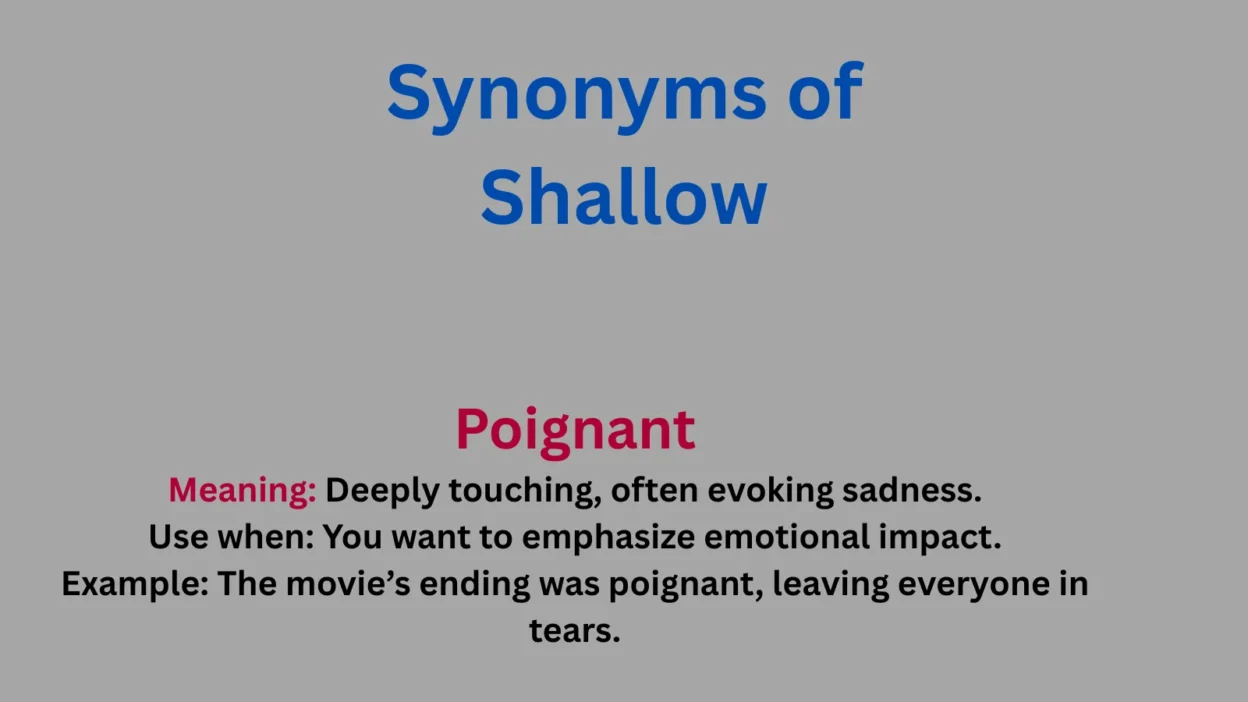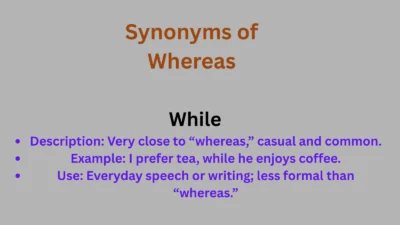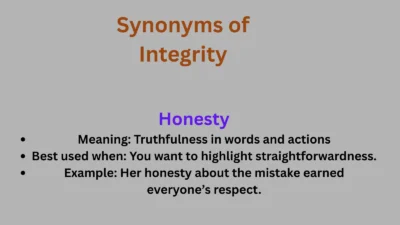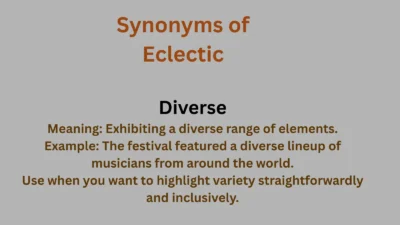Have you ever felt happy and sad at the same time? That emotional mix—the joy tinged with sorrow, or the pain softened by beauty—is perfectly captured by the word bittersweet. It’s a word we often use to describe memories, endings, or moments that are emotionally complex. But sometimes, you might want a more vivid, poetic, or specific way to say it. That’s where the right synonyms of bittersweet can help.
In this article, we’ll explore emotional and expressive synonyms of bittersweet that capture everything from gentle nostalgia to heartache with beauty. You’ll find meanings, tones, and real examples to use each word with care and depth.
Suppose you’re writing about love, loss, change, or reflection, the right word matters. These alternatives will help you express layered emotions in a way that truly resonates.
What Does Bittersweet Mean?
The word bittersweet describes an emotional blend — a feeling that is both pleasant and painful at the same time. Think of tasting chocolate that is both bitter and sweet, or feeling joy mixed with sadness. It’s often used when something is beautiful yet tinged with loss or regret.
Key nuances of bittersweet include:
- Mixed emotions: happiness + sadness
- Nostalgia: pleasure in recalling something, but with a hint of sadness
- Tender melancholy: gentle sadness paired with warmth
- Emotional complexity: not purely happy or sad, but layered
Unlike traits like modesty or shyness, bittersweet is about the emotional complexity we experience when joy and sorrow meet.
Synonyms of Bittersweet and When to Use Them
Here’s a handy list of 30 alternatives to bittersweet. Each comes with a brief meaning, a usage tip, and an example sentence.
1. Poignant
Meaning: Deeply touching, often evoking sadness.
Use when: You want to emphasize emotional impact.
Example: The movie’s ending was poignant, leaving everyone in tears.
2. Melancholy
Meaning: A gentle, reflective sadness.
Use when: Mood is quietly sad, without overt happiness.
Example: There was a melancholy calm in the empty house.
3. Wistful
Meaning: Longing with a touch of sadness.
Use when: You want to express yearning for something lost or distant.
Example: She gave a wistful smile, thinking of her childhood.
4. Nostalgic
Meaning: Sentimental about the past.
Use when: Reflecting fondly on memories, often with some sadness.
Example: The old photos made him feel nostalgic for his college days.
5. Rueful
Meaning: Expressing regret or sorrow.
Use when: Showing mild remorse or regret mixed with humor.
Example: He gave a rueful shrug after forgetting her birthday.
6. Sorrowful
Meaning: Filled with grief or sadness.
Use when: The sadness is more pronounced and serious.
Example: The sorrowful news of the loss spread quickly.
7. Tender
Meaning: Gentle and affectionate, with slight sadness.
Use when: Highlighting softness and care in an emotional moment.
Example: Their farewell was tender, with soft smiles and quiet tears.
8. Heartfelt
Meaning: Sincere and deeply felt.
Use when: Emphasizing genuine emotion, often in gratitude or regret.
Example: She gave a heartfelt apology for her mistake.
9. Poignantly happy
Meaning: Happiness mixed with emotional depth.
Use when: You want to highlight happiness with a bittersweet undertone.
Example: He was poignantly happy to see his family after years apart.
10. Compassionate
Meaning: Showing empathy and kindness, often with sadness.
Use when: Emotions involve caring for others’ pain.
Example: Her compassionate words comforted the grieving friends.
11. Lamenting
Meaning: Expressing grief or mourning.
Use when: Focusing on sorrow, often about something lost.
Example: The poem was a lamenting tribute to a lost love.
12. Reflective
Meaning: Thoughtful, often about the past with mixed feelings.
Use when: Emphasizing introspection with subtle emotions.
Example: He had a reflective look after hearing the old song.
13. Tragic
Meaning: Causing great sadness or suffering.
Use when: The situation is overwhelmingly sad, sometimes dramatic.
Example: The story had a tragic ending that stayed with readers.
14. Gently sad
Meaning: Mild sadness with softness.
Use when: You want to soften the tone of sadness.
Example: There was a gentle, sad feeling at the end of the party.
15. Ambivalent
Meaning: Mixed feelings, both positive and negative.
Use when: You want to highlight conflicting emotions.
Example: She felt ambivalent about moving to a new city.
16. Hopeful yet sorrowful
Meaning: Optimism mixed with sadness.
Use when: Highlighting positive feelings despite pain.
Example: He was hopeful yet sorrowful about the future.
17. Grateful but sad
Meaning: Thankfulness paired with sadness.
Use when: Emotions of appreciation come with loss.
Example: She was grateful but sad to leave her childhood home.
18. Pensive
Meaning: Deeply thoughtful, often with sadness.
Use when: Emphasizing quiet contemplation.
Example: He was pensive as he watched the sunset.
19. Blue
Meaning: Informal term for mild sadness.
Use when: A casual or conversational tone is needed.
Example: She felt a little blue after the party ended.
20. Morose
Meaning: Gloomy or sullen sadness.
Use when: A Stronger, darker emotional tone is needed.
Example: His morose expression told the story without words.
21. Elegiac
Meaning: Expressing sorrow or lament, often poetic.
Use when: Writing or speech has a formal, mournful tone.
Example: The elegiac poem honored the fallen soldiers.
22. Sombre (somber)
Meaning: Serious and dark in mood.
Use when: A weighty, grave tone is appropriate.
Example: The atmosphere was sombre after the announcement.
23. Touching
Meaning: Emotionally moving, often gently sad.
Use when: You want to highlight emotional impact without heaviness.
Example: The touching reunion brought tears to many eyes.
24. Painful joy
Meaning: Happiness with an edge of pain.
Use when: Emphasizing the difficulty of happy moments.
Example: Their farewell was full of painful joy.
25. Heartbreaking
Meaning: Extremely sad or emotionally devastating.
Use when: The emotion is intense and deeply felt.
Example: The heartbreaking story stayed with her for days.
26. Grimly hopeful
Meaning: Hope despite a bleak situation.
Use when: Balancing hope and despair in tough contexts.
Example: They were grimly hopeful about the rescue effort.
27. Tenderly nostalgic
Meaning: Gentle longing for the past.
Use when: Emphasizing soft, affectionate memories.
Example: She looked at the old letters with tender nostalgia.
28. Bitter
Meaning: Sadness mixed with resentment or pain.
Use when: You want to emphasize sharp emotional pain.
Example: There was a bitter edge to his goodbye.
29. Softly mournful
Meaning: Quiet, gentle grief.
Use when: Emphasizing subtle sadness without drama.
Example: The song was softly mournful, perfect for a rainy day.
30. Mixed feelings
Meaning: Having both positive and negative emotions.
Use when: General phrase for complex emotions.
Example: She had mixed feelings about leaving her hometown.
How to Choose the Right Synonym
Selecting the best synonym depends on the emotional tone and context you want to convey:
- For gentle, reflective sadness: try wistful, melancholy, or pensive.
- For a strong emotional impact, choose poignant, heartbreaking, or tragic.
- For mixed feelings with a positive edge: go with hopeful yet sorrowful or poignantly happy.
- For formal or poetic contexts, elegiac or somber might fit best.
- For casual conversations, blue or mixed feelings work well.
- When regret or humor mix with sadness, rueful is a great choice.
Cultural and Emotional Contexts
Some synonyms have cultural or situational flavors:
- Nostalgia is often linked to remembering past times fondly, which is common in Western contexts celebrate heritage.
- Elegiac is more common in literary or ceremonial contexts, like funerals or memorials.
- Bitter carries a stronger negative tone and can imply unresolved anger or resentment, so use it carefully.
- Rueful often adds a light, almost humorous regret, popular in British English.
Conclusion
Bittersweet is a rich, complex word that captures a beautiful emotional paradox. By expanding your vocabulary with these 30 synonyms, you can express a wide range of feelings from gentle sadness to profound nostalgia, and everything in between. The key is understanding the subtle shades of meaning and the tone you want to set, whether it’s tender, mournful, hopeful, or regretful.
Next time you want to capture those mixed emotions, try one of these alternatives to bittersweet to add nuance and color to your writing or conversations. With practice, you’ll find the perfect word that speaks exactly to your heart — and your reader’s.




